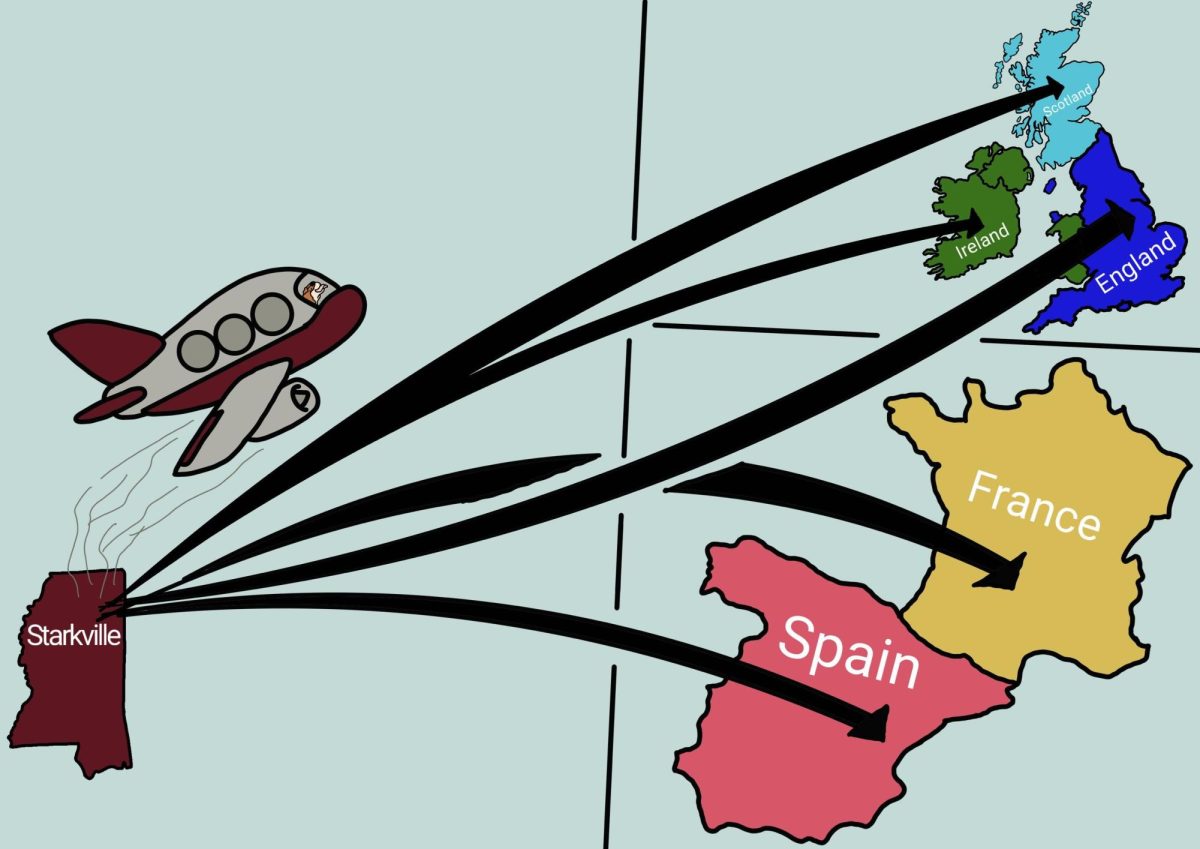The MSU Faculty Book Talk Series began this past Tuesday with Andrew Lang, assistant professor of history. On the fourth floor of Griffis Hall, Lang discussed his book, “In the Wake of War: Military Occupation, Emancipation, and Civil War America.” Published by LSU Press in 2017, it has won the 2018 Tom Watson Brown Book Award. More than 50 entries competed for the award, so having it be his first book was a major accomplishment.
The Faculty Book Talk Series was created to highlight academic books written by Mississippi State University professors. Established by Eric Vivier, with the support of Dean Chris Snyder of the Shackouls Honors College and Dean Rick Travis of the College of Arts and Sciences, this lecture series celebrates faculty at MSU who write books while it provides an opportunity for them to share their research with their colleagues, students and the public.
Books are typically overlooked in favor of faculty research at the university, which focuses on journal articles and the total amount of money brought in by grants.
Vivier, an assistant professor of English, said he thought and time dedicated to the writing of books deserves recognition.
“Books take years of careful research, thinking and planning to write, and their publication can have an enormous impact within our respective disciplines,” Vivier said. “I’d love for more students to come to these events, and I’ll do my best to publicize future events for that purpose.”
Able to seat roughly 60, an excellent Tuesday turnout of over 30 people were in attendance. Lang’s text challenges current perspectives of the Mexican-American War, Civil War and Reconstruction, connecting martial republicanism to the culture of the era.
Beginning with the inception of policy-based military occupation, it stretches to restoring a single unified republic following the Civil War. Military supervision was not offered, as the government was cautious and weary not to impose a continuous military rule. Compliance of reformation occurred in 1871, but there was considerable social upheaval after the Force Acts were initiated.
Lang, quoting former President Ulysses S. Grant from 1879, said, “The trouble about military rule in the South was that our people did not like it. It was not in accordance with our institutions.”
Instead of briefly summarizing the entire text, Lang focused on highlighting the final two chapters during his discussion. Following the fall of the Confederacy, the U.S. was in a precarious situation with how to handle the rebuilding of the republic, aiming to avoid more upheaval.
In doing so, Lang explained the disastrous management by the government that encompassed the Reconstruction Era. Neutered by dwindling military presence, the Posse Comitatus Act in 1878 and horrid Supreme Court decisions, the government failed to protect the freedoms African-Americans needed at such a crucial period.
Following Lang’s spotlight of his book, there was an inquisitive discussion segment. Several curious individuals asked for additional details or hypothetical scenarios. He responded to each question carefully and with exceptional tact.
Lang is currently co-authoring “The American Civil War and the World: Limited War, Limited Peace.” His current research addresses the demobilization of Union armies, an anti-militaristic process that portended the restrained scope and purpose of Reconstruction.
Following two MSU Faculty Book Talks from last fall, there are three more talks planned for this spring. The next event will feature Melanie Loehwing, assistant professor of communication, and her book “Homeless Advocacy and the Rhetorical Construction of the Civic Home” at 4 p.m. Feb. 21 in Griffis 401. Fantastic discussion and light refreshments will be provided.
MSU faculty member addresses the Civil War in award-winning book
About the Contributor

Brandon Grisham, Former Online Editor
Brandon Grisham served as the Online Editor from 2019 to 2020.
He also started The Reflector's digital archive, dubbed the "Grisham Archive Project."


























































































